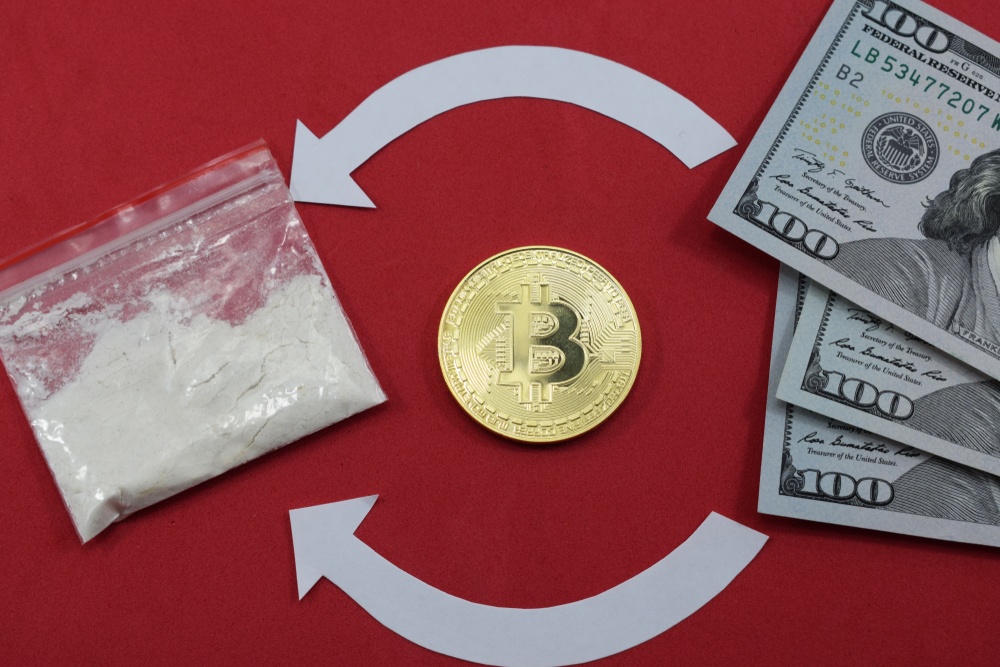Craig Wright: Bitcoin Users Are Money Launderers & Will Rot in Jail

Craig Wright, who claims to have created Bitcoin, now warns that users of the world's largest cryptocurrency could rot in prison for money laundering. | Source: CoinGeek/YouTube (i), Shutterstock (ii). Image Edited by CCN.com.
By CCN.com: According to self-declared Bitcoin creator Craig Wright, everyone who runs a Lightning node, uses privacy-centric cryptocurrency Monero, or uses mixing services like CashShuffle will be guilty of money laundering and eventually suffer the brutal legal consequences.
Wright says that once courts figure out the money transmitter nature of various blockchain products, swift action can be expected.
Satoshi Nakamoto Calls for Government Regulation?

Wright believes that a few government orders could swiftly lead to the destruction of several blockchain systems. He acknowledges that this will not be good news for crypto investors, but he insists it’s probably on the cards for them. One day their investment will have value, the next it won’t, he warns.
“A money transmitter is any person engaged in the transfer of funds — any funds, including cryptocurrencies and bitcoin. If you are running a Lightning node, you are acting as a money transmitter. It doesn’t matter that you don’t like it. The law doesn’t care.”
Those who ignore his warnings and run Lightning Network nodes anyway will find themselves rotting in prison, all for the crime of using Bitcoin.
In a broader perspective, Wright advocates for one method of scaling Bitcoin, and for leaving much of the original design alone. Wright recently claimed copyright over much of the early code and the entirety of the whitepaper. Someone else has subsequently filed for the same copyright.
The self-proclaimed Satoshi Nakamoto might rail against it, but in the Bitcoin world, there’s only one kind of acceptable proof: cryptographic evidence. Without it, people are just prone to doubt whatever someone says. This type of evidence would carry a lot more weight than whatever any court or copyright office says.
At this point, there are several people with competing claims to the “Bitcoin” brand.
But Which Bitcoin?
There are also several cryptocurrencies with a semi-similar history who all have “Bitcoin” in their names. Some believe this alone presents a particular threat to Bitcoin. But if most people don’t immediately understand the way Bitcoin and blockchain work, they do understand the price of assets. They’ll know something is wrong if they’re getting multiple coins for the price of one.
Everything requires a fair bit of research. At this point, only Bitcoin Cash and Bitcoin are listed on most major crypto exchanges. Bitcoin SV – a fork of BCH, which was itself a fork of BTC – relies on a tertiary market that may or may not be liquid enough to float itself.
The liquidity of crypto markets, in general, is a question for the ages. If a vast majority of the coin were to be liquidated, would there be sufficient cash to justify the prices people would be trying to hold at?
For his part, Wright believes that the government is going to play a significant role in the shaping of the future of the blockchain. Wright says:
“To think that it’s a distributed system which makes you safe is a big error. You’re playing lotto with your future. More importantly, it allows law enforcement to trace your addresses and, in the future, hold you accountable. It doesn’t matter whether you’ve been a criminal before you start using such systems; the mere fact that you are aiding and abetting and allowing criminals to mix money with your funds makes you a part of the system.”
The nChain chief scientist also proclaims that a regulated system is likely to be freer than a system like Monero, which seeks anonymity. In this sense, Wright may be referring to the legal difficulty with building a business in the ecosystem.